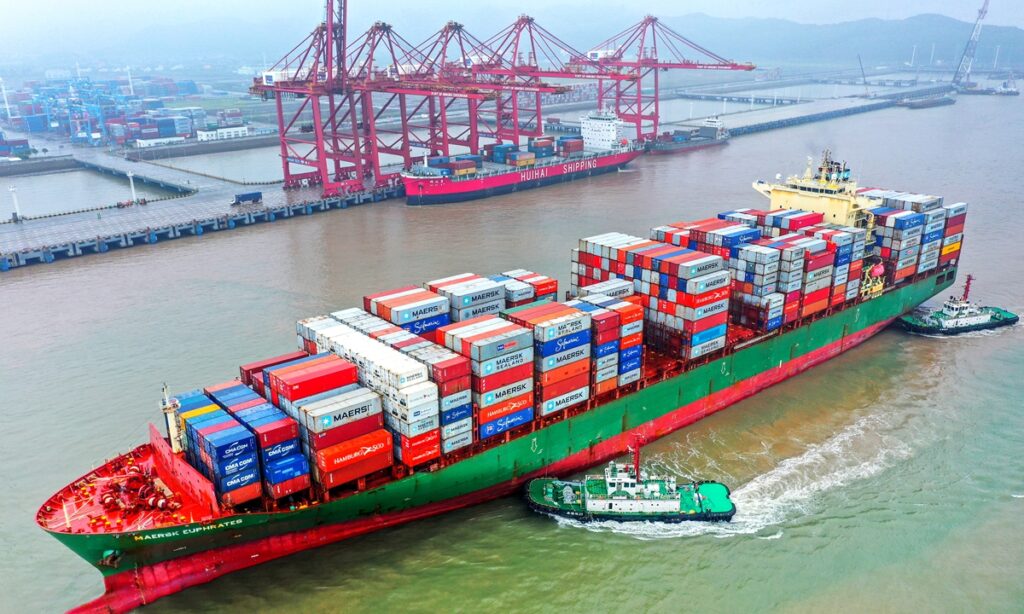A partial lockdown of Ningbo city in East China’s Zhejiang Province, home to the world’s largest port, has led to problems like fewer drivers and trucks, raising concerns about supplies for renowned international fast fashion brands like Nike and Adidas.
But the problem is less serious than some people might have thought, as Chinese suppliers have abilities to redistribute their industry chains and the local government has stepped in to help stabilize logistical supply, industry insiders say.
The authorities announced a lockdown for the district of Beilun in Ningbo following the discovery of a coronavirus case on Saturday. The infected person was an employee of Shenzhou International, a major garment processing company in Ningbo that supplies global sports and leisure brands like Nike and Uniqlo.
From Saturday till press time, Ningbo reported 23 coronavirus cases. The outbreak is highly concentrated in Shenzhou’s plant in Beilun.
Shenzhou released a statement on Monday, saying that parts of the company’s production base in Beilun will halt production in the short term to conform to local segregation measures. The company will actively evaluate how the outbreak will affect its operations.
This has triggered some worries that China’s coronavirus spreading might “hit” overseas clothing brands, as some overseas media put it. Shenzhou didn’t respond to an interview request from the Global Times.
The lockdown of Beilun also has an impact of wider scope, as Beilun is one of the 19 areas of Ningbo-Zhoushan port and home to some of the city’s busiest container terminals. Last year, the Ningbo-Zhoushan port’s throughput exceeded 30 million standard containers, a record.
Local officials have taken emergency measures to guarantee the logistics of Beilun after the lockdown, including issuing thousands of passes to qualified truck drivers to help them enter closed areas, as well as allocating designated “greenways” where external container vehicles are allowed to enter the port region, officials said at a coronavirus press conference on Sunday.
He Sheng, general manager of Ningbo Dls International Trade Co, a wine importer, said that because of the special pass policy, the company had managed to pick up products from the warehouses in Beilun.
“The lockdown caused some inconvenience, such as fewer drivers and vehicles that are willing to enter the closed area. But in general, those problems are not very serious and have not had much influence on our business,” He told the Global Times.
Chen Jing, vice president of the Technology and Strategy Research Institute, told the Global Times that the lockdown of some regions in Ningbo wouldn’t affect industry chains at large, particularly as Chinese companies have developed flexibility in managing their supply chains.
“For companies like Shenzhou International, they have advantages in integrating supply chains, and certain plant suspensions would not affect the company’s performance,” he said.
According to Chen, Shenzhou should have made contingency plans to cope with coronavirus-triggered production stoppage, whether by shifting to other ports in China or letting unaffected employees work. Besides, overseas brands like Nike or Adidas would not end long-term partnerships with domestic suppliers, he said.
A Maersk ship makes berth in Dapukou terminal at Jintang port area of Ningbo Zhoushan port which runs 18 shipping routes covering the Belt and Road Initiative. Photo: cnsphoto



